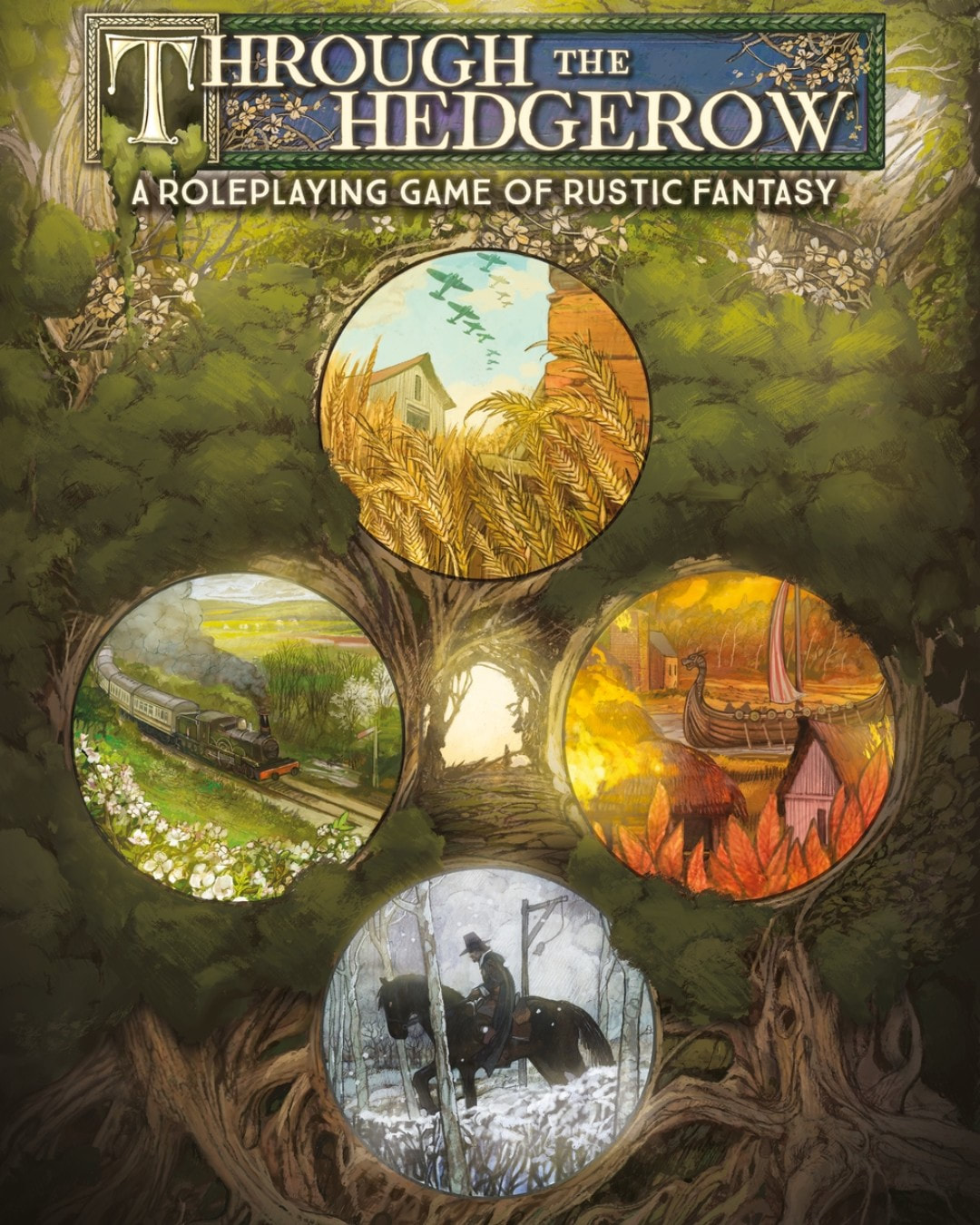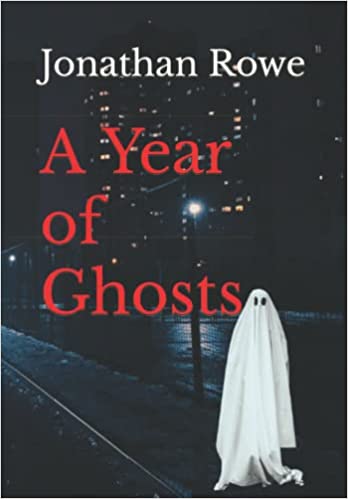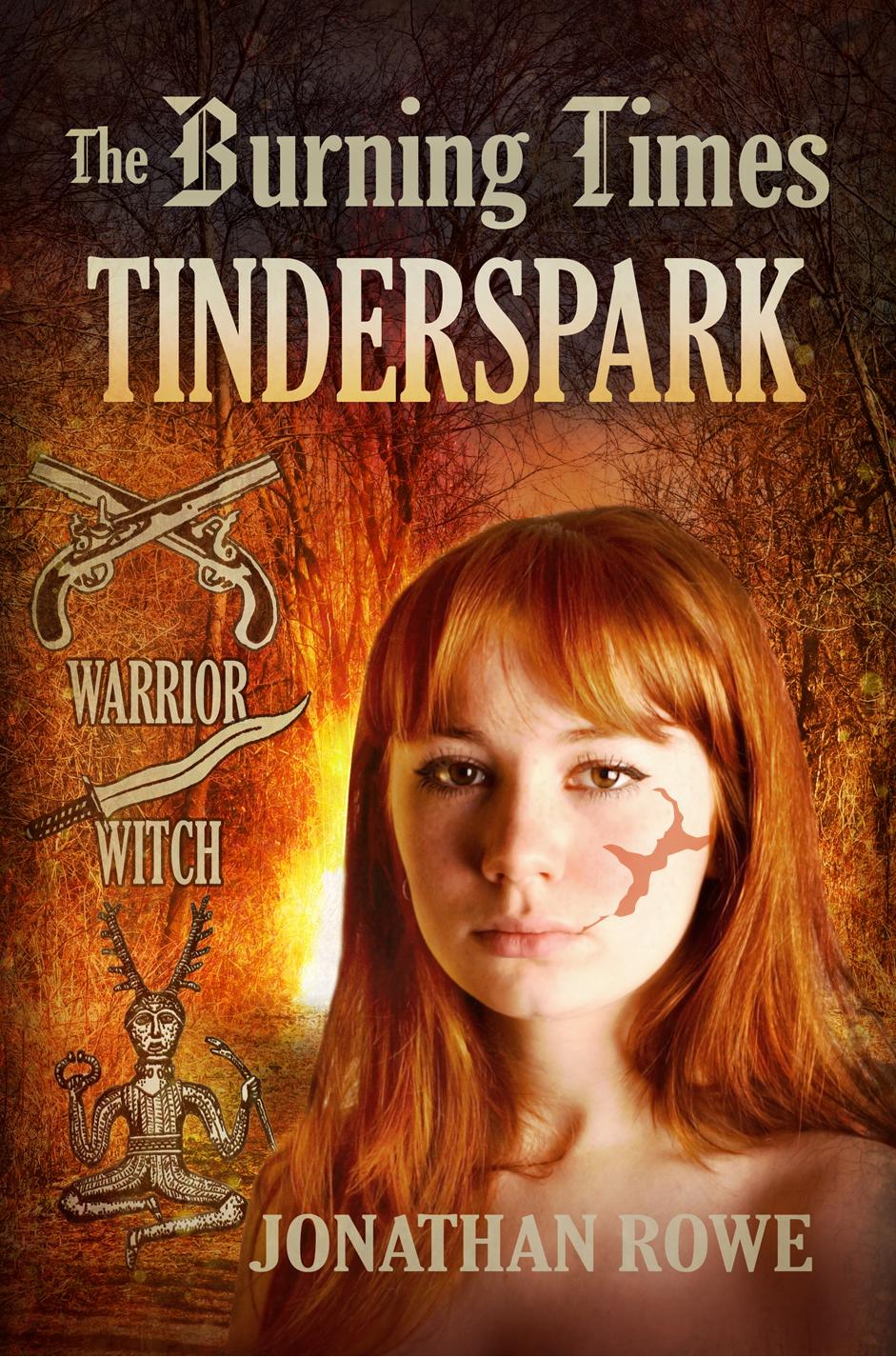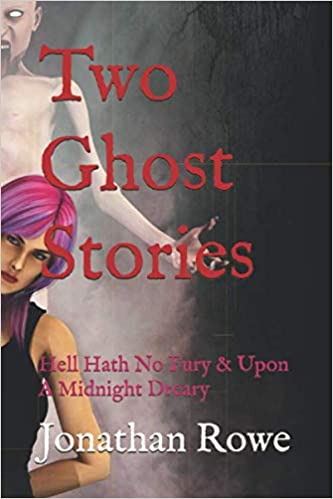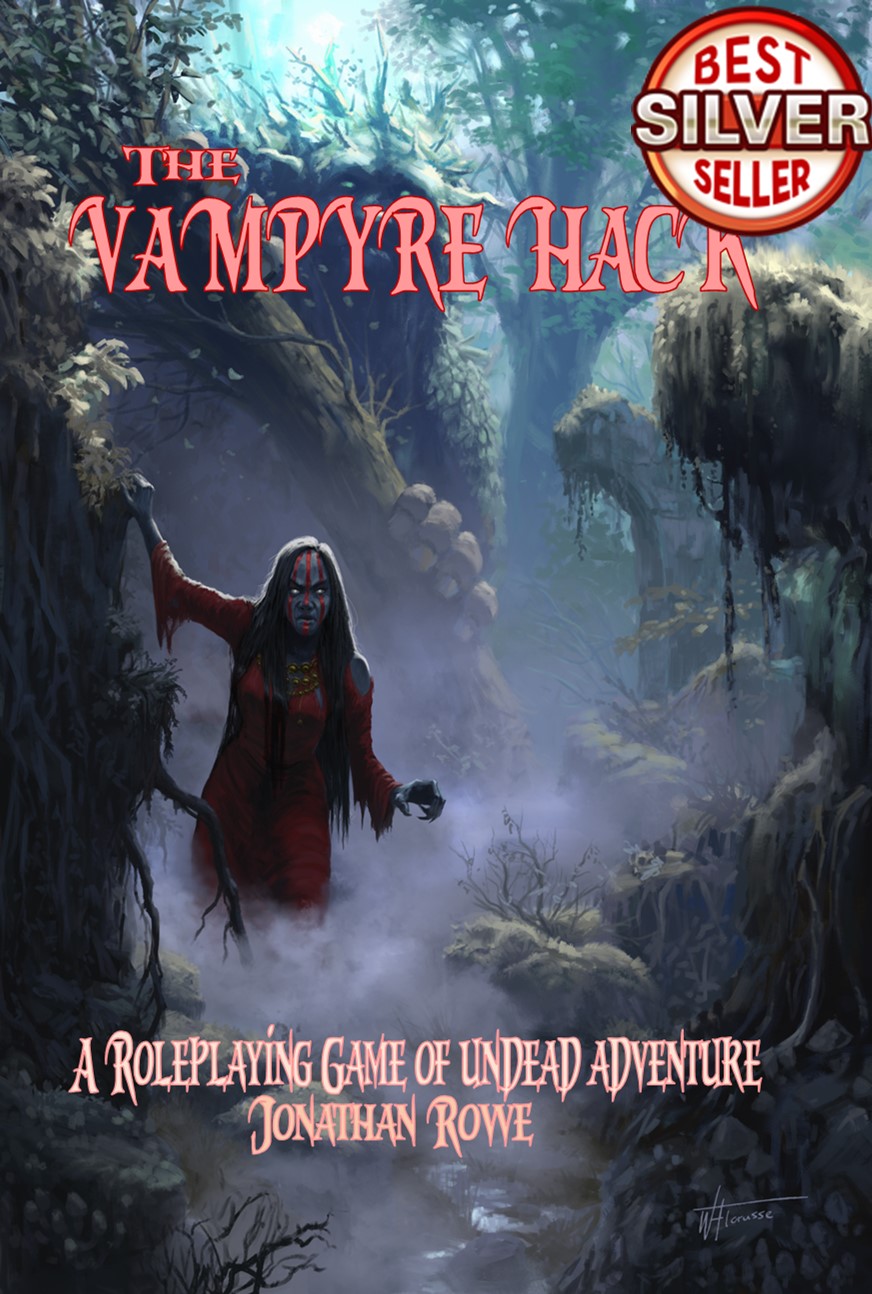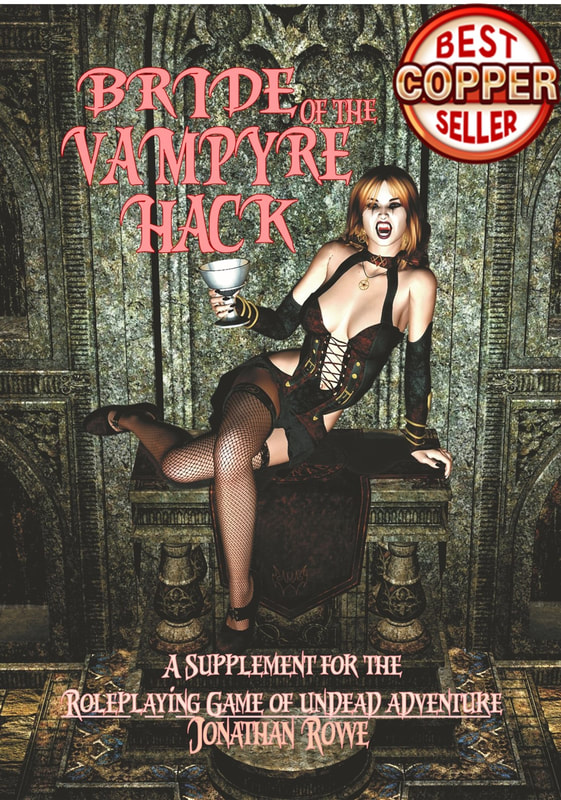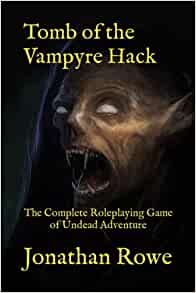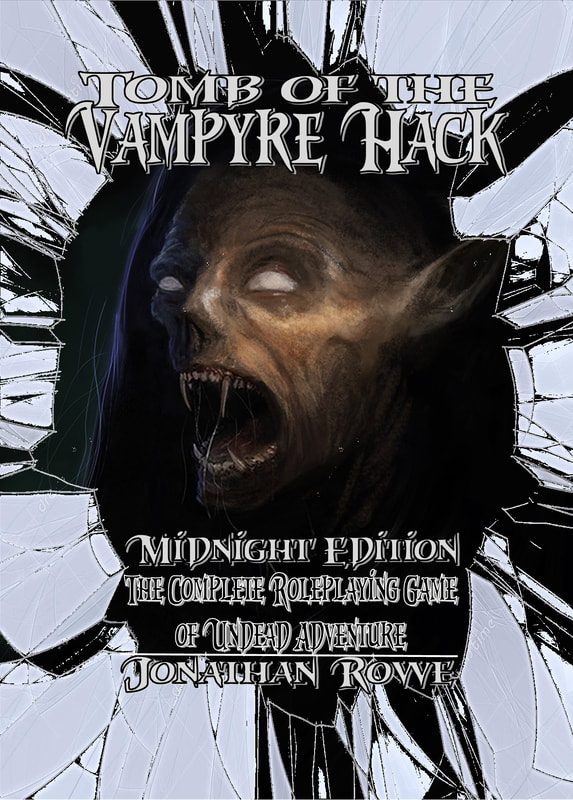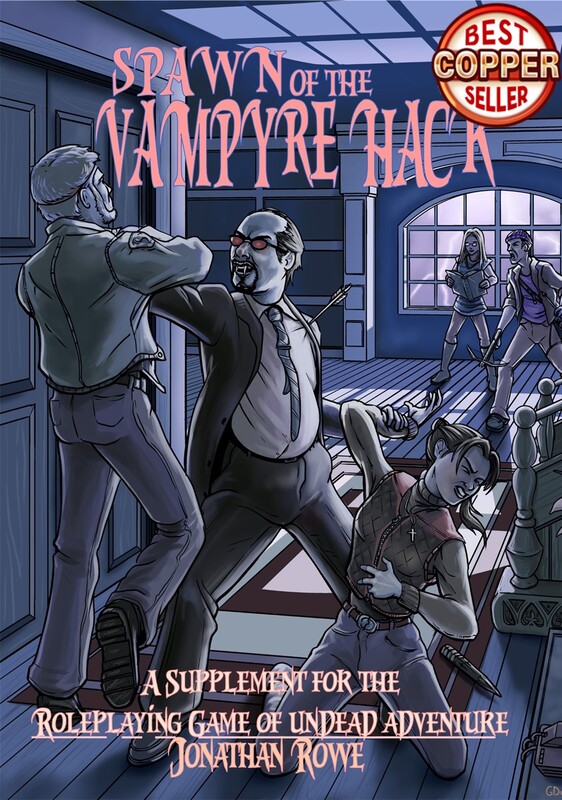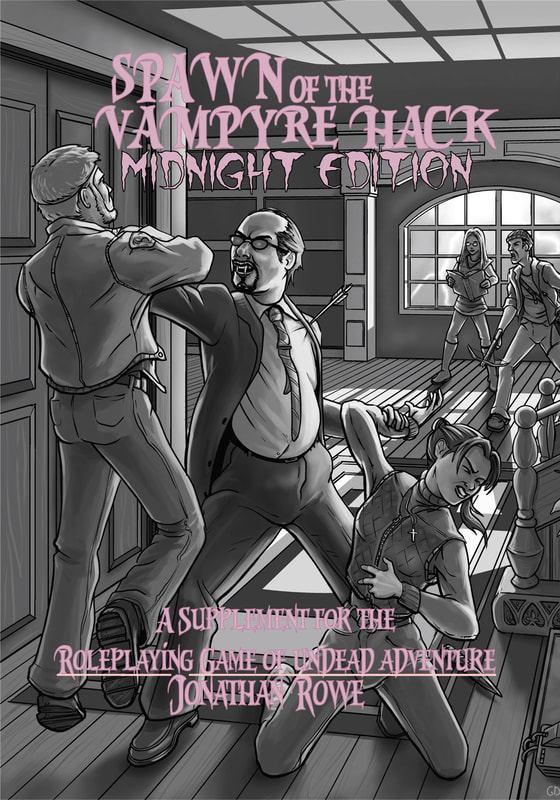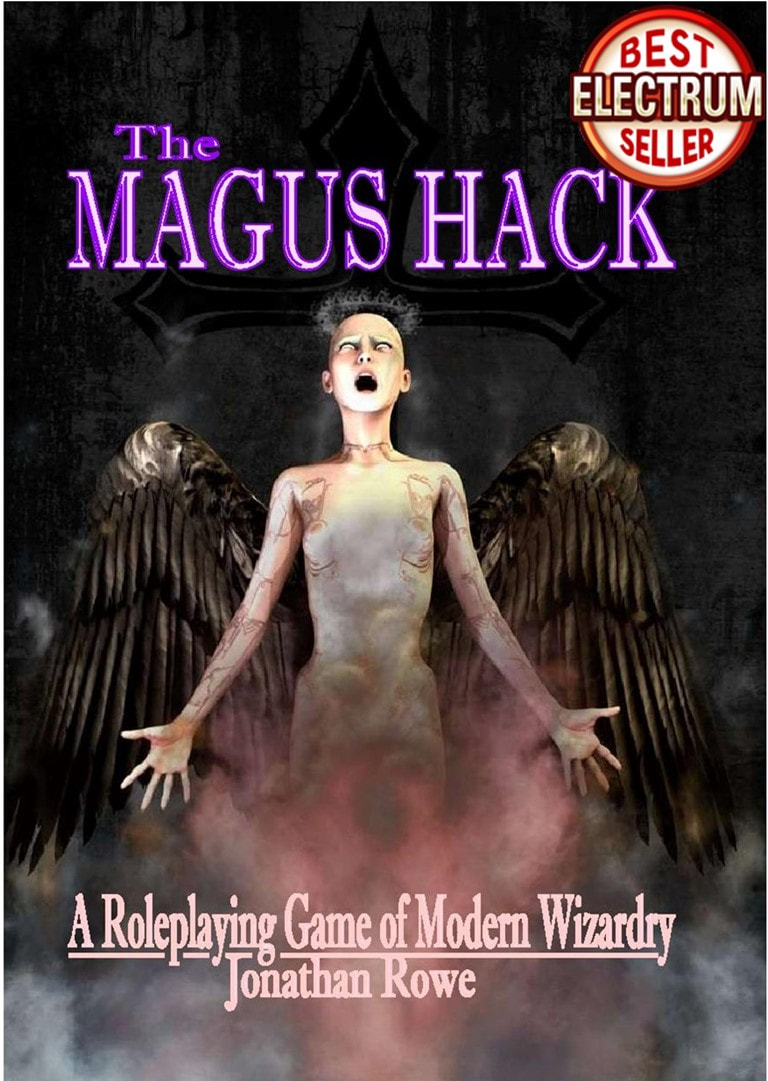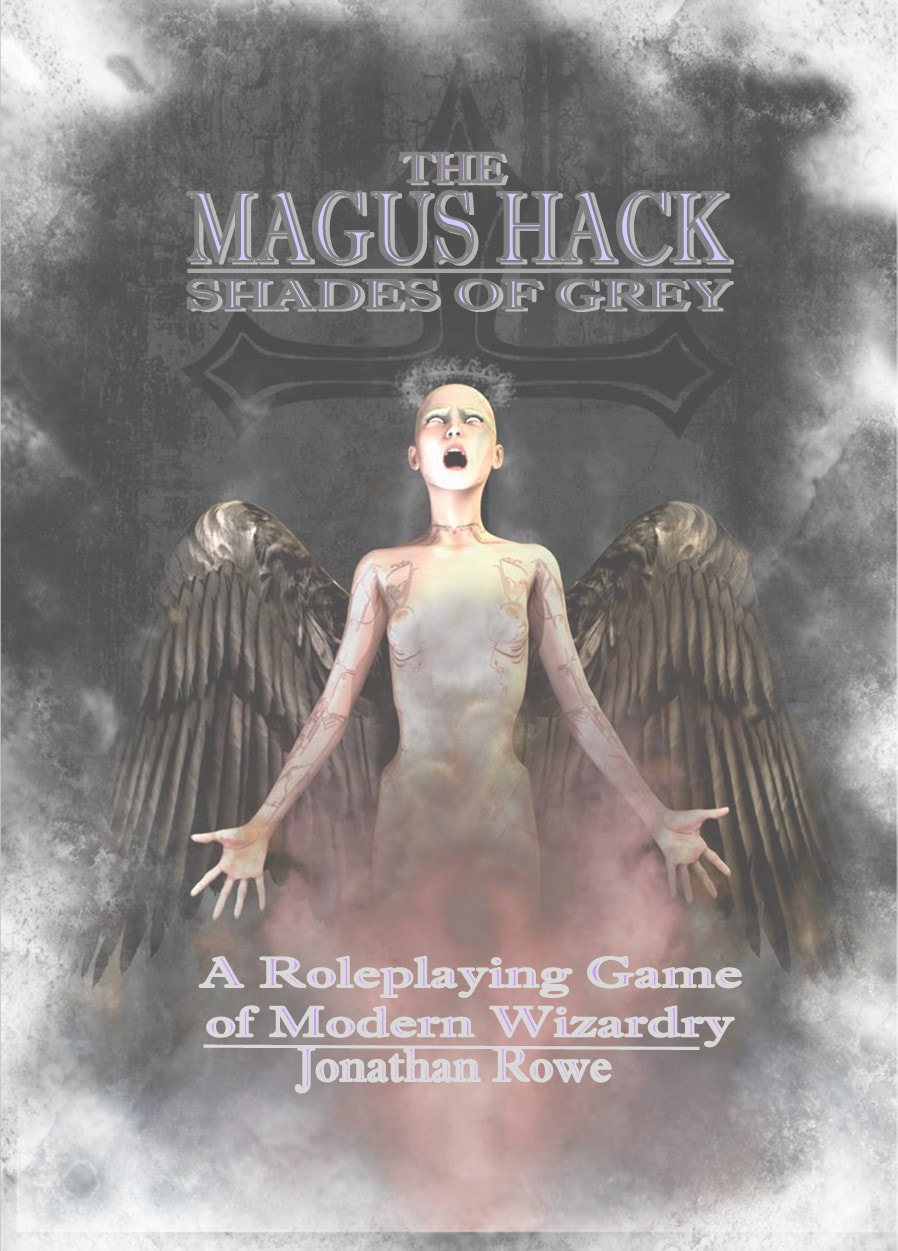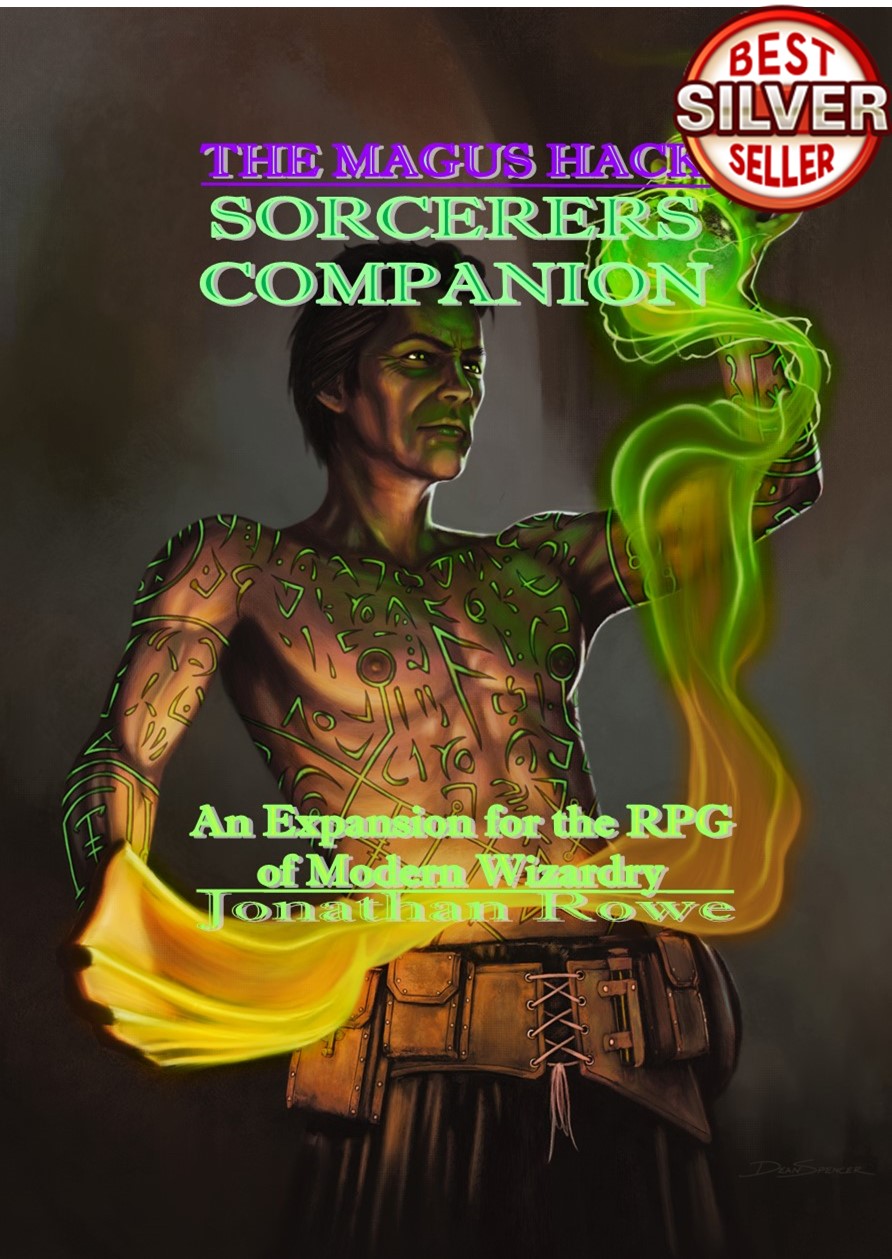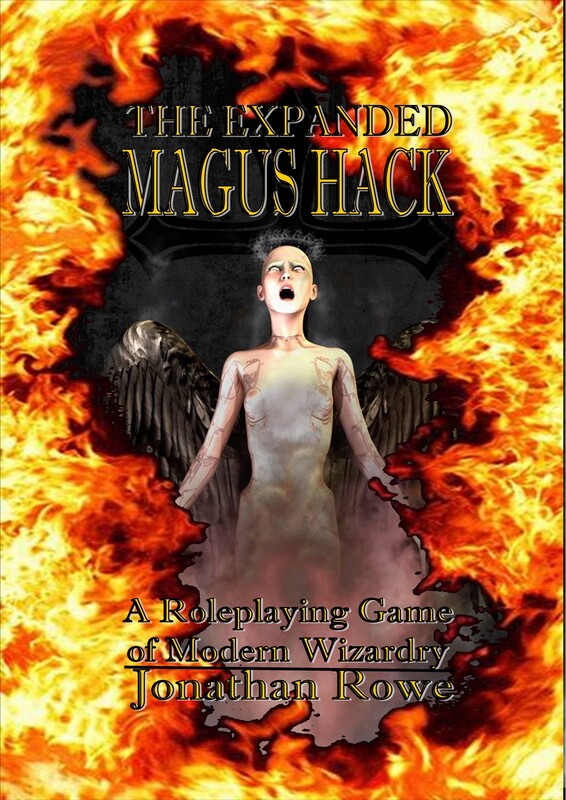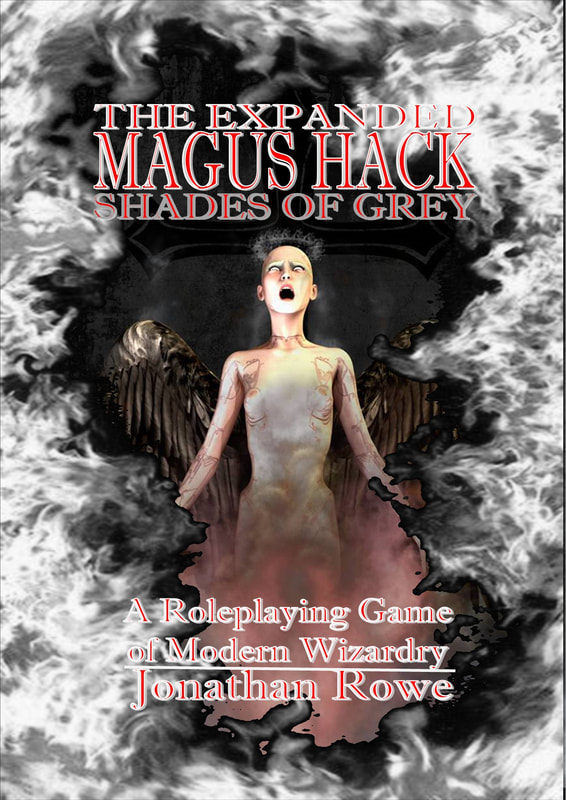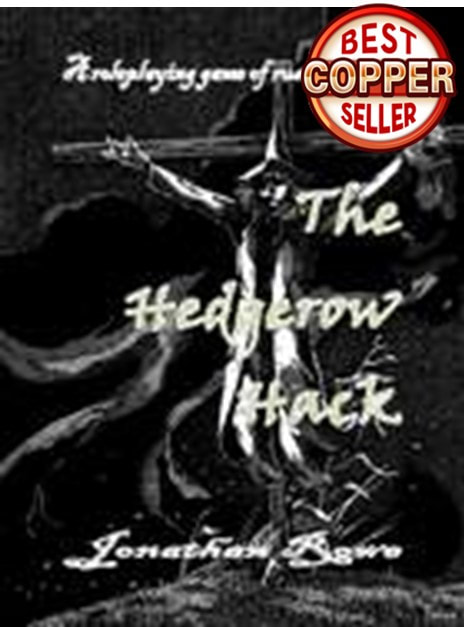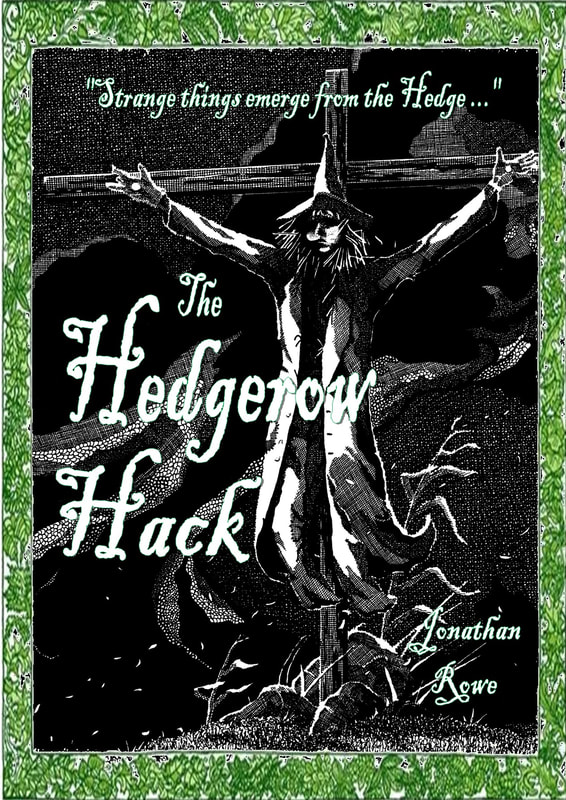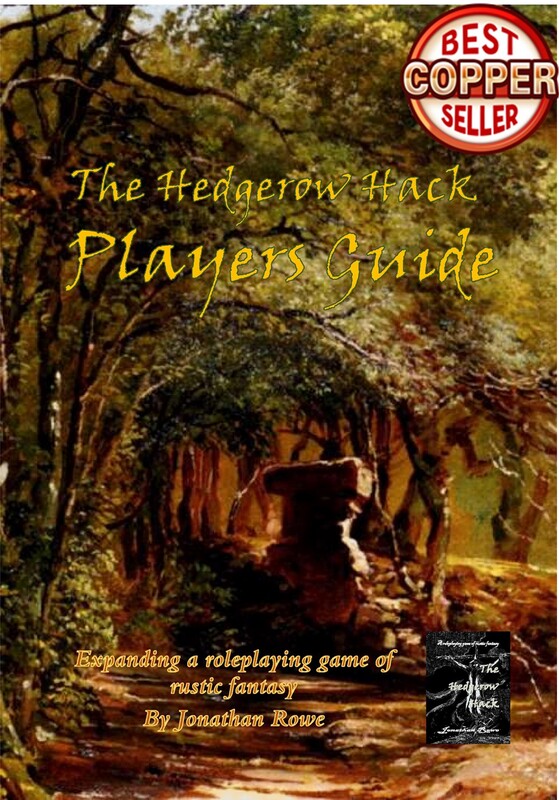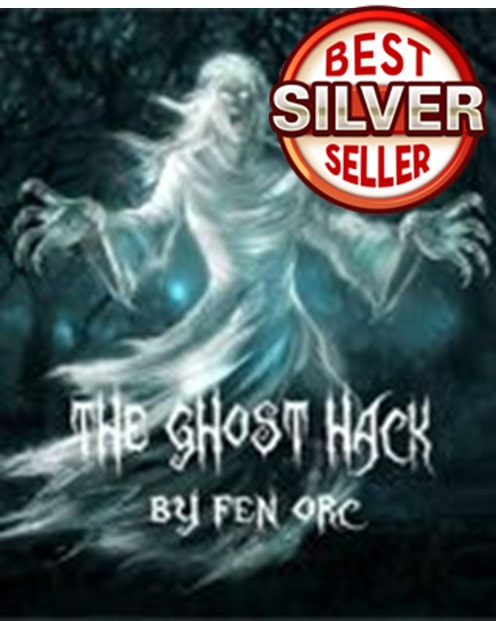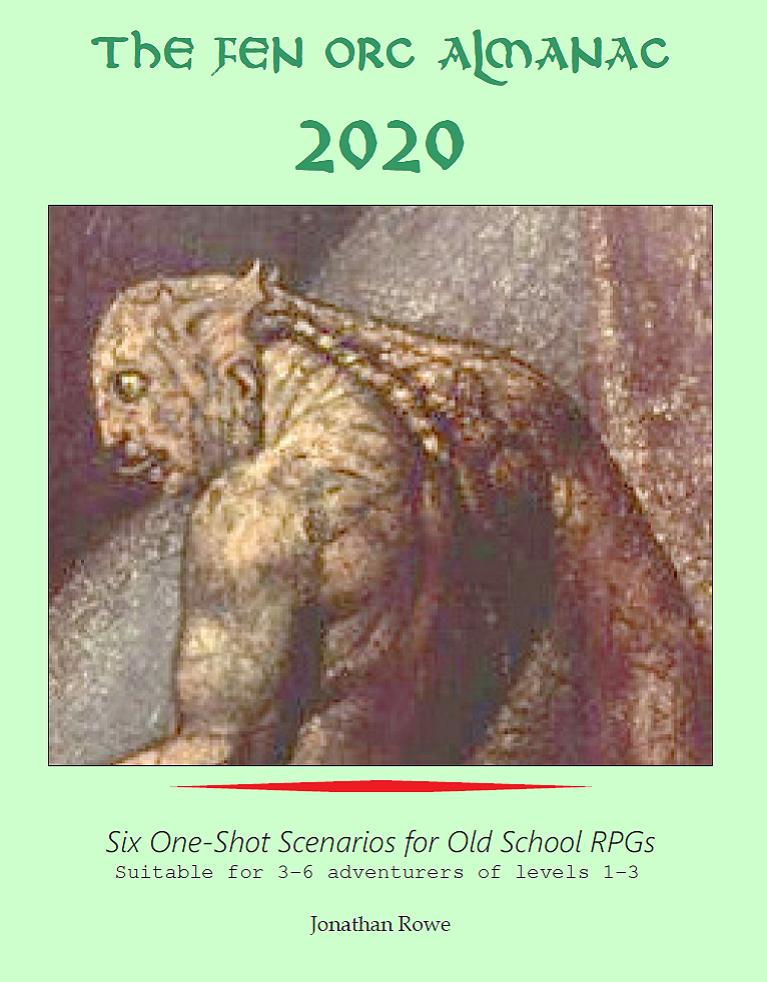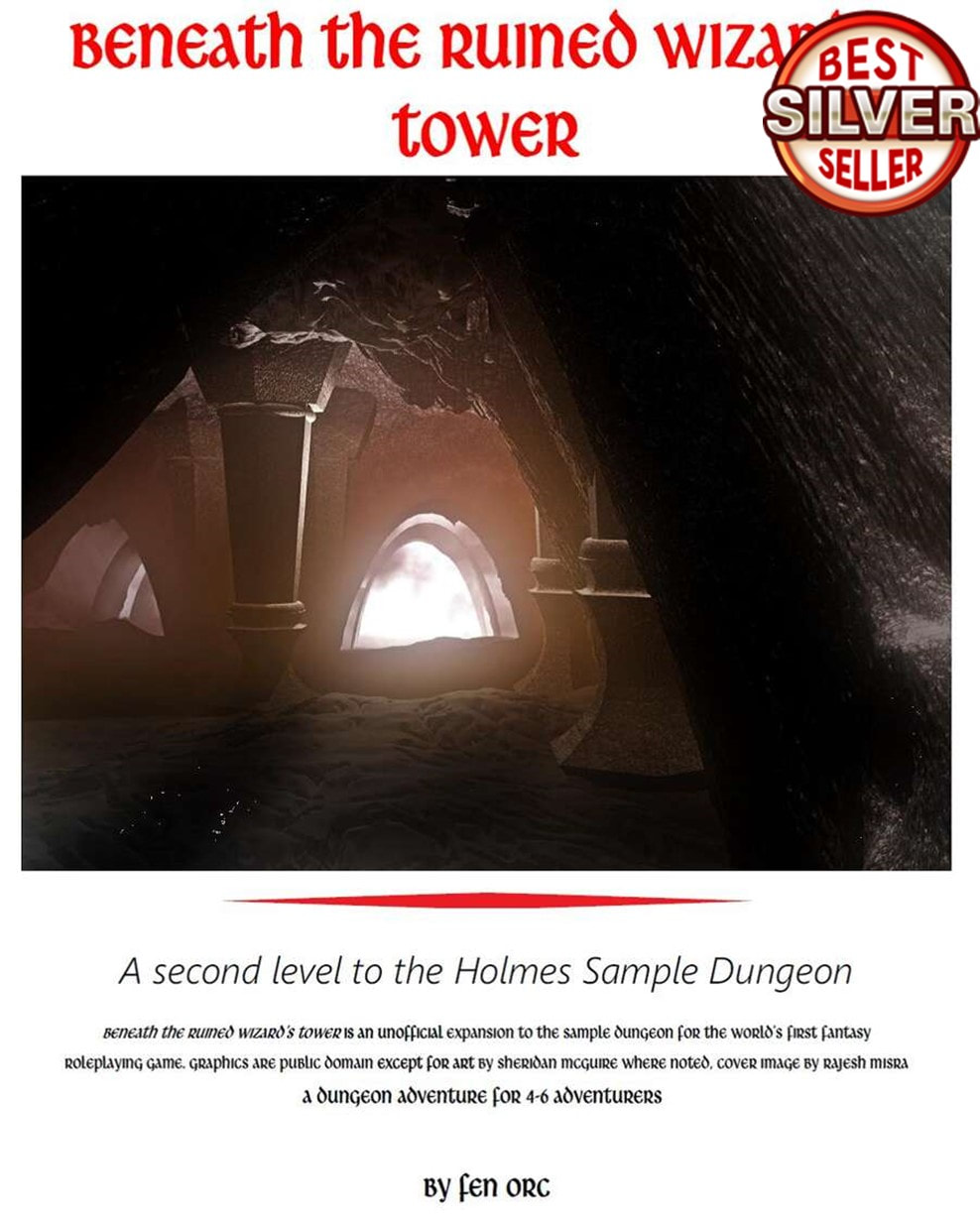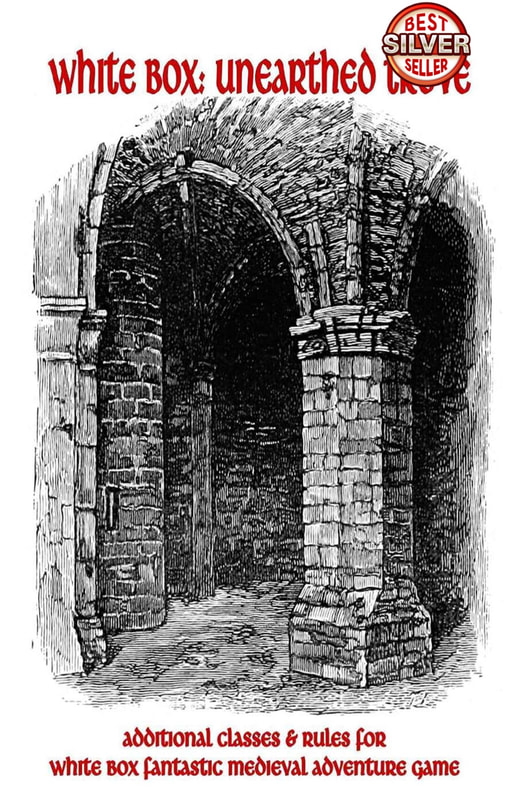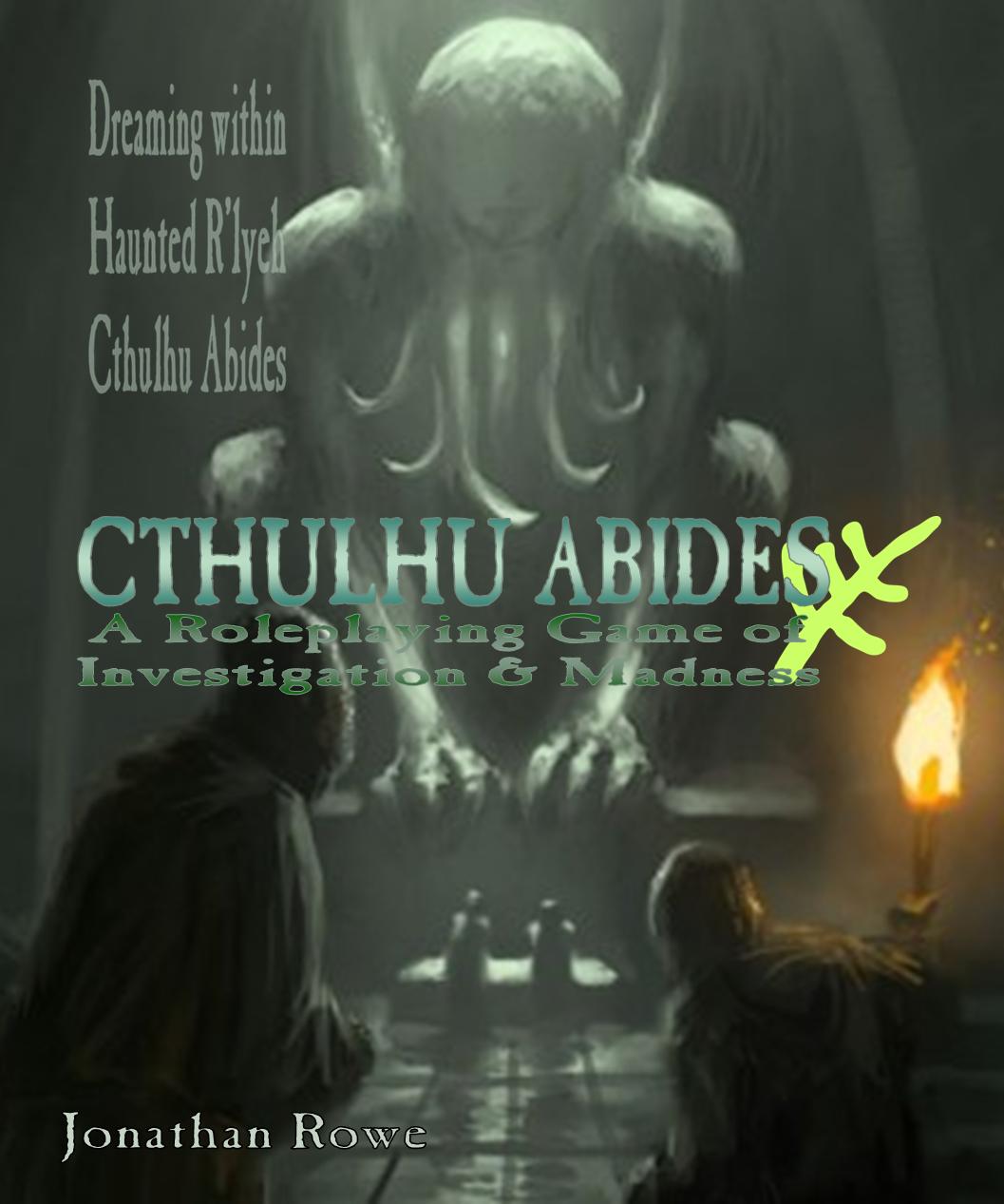|
It's time to take a look at Forge's magic system. This is the only aspect of the game to attract universal praise. Ron Edwards identifies the magic system as "genuine innovation" and even Thomas Wilburn (who hates the game) admits that " the game has an excellent way of dealing with high-powered wizards." Forge splits magic into two broad types: Pagan Magic (aka Sorcery) and Divine Magic (clerical stuff). In fact, all the magic is ultimately divine in origin, being passed onto lesser races by the gods. The difference is that Divine Magic is still a direct gift of the remaining (albeit imprisoned) gods, while Pagan Magic covers mystical forces that mortals have learned to master without the gods' ongoing assistance. When you sink those 10 skill slots into the Magic skill, you must make a decision: Divine or Pagan? This is particularly important for dimwit Ghantus, who normally have to spend twice as many slots to acquire any skill at all. Since Divine Magic is granted directly by a god and doesn't reflect on the caster's own intelligence or education, Ghantus can learn Divine Magic for the standard 10 slots rather than a nearly-impossible 20. Let's take a look at Divine Magic this week. Knights of Berethenu and Warriors of Grom
There are a few downsides to Divine Magic compared to Pagan Magic. You cannot spend extra skill slots to be better-than-normal at Divine Magic: Berethenu and Grom give you what they give you and that's that. No taking a chance with higher level spells: at 1st level Magic you get 1st level spells and that's all. You cannot "pump" the spells either, pushing your luck for better outcomes as Pagan Mages do. Finally, advancing in the Magic skill requires acts of servitude to the god (tithing for Berethenu, personal trophies for Grom) and, as usual, there's a clerical code which, if broken, strips you of your godly powers for ever more. Basic Mechanics You get a number of spell slots equal to your Intellect (let's say, 7) and you could fill them with different spells, giving a typical Divine Mage 7 starting spells. First level Divine spells cost 7 Spell Points (SPTS) to cast and a Mage typically has 20-25 SPTS (2d10, doubled), with Kithsara lizardfolk having a half dozen extra SPTS because they are, you know, very mystical. This means you will cast 3, maybe 4 spells before running out of magical juice. Rather than knowing a wide spread of spells, it might be better to start with a smaller selection, say 3, that you are really good at. This is where the 'schematics' come in. These are tables that determine the variable factors for each spell: its range and duration, how much damage it causes or heals, etc. Instead of learning a new spell, you can use up a spell slot to re-roll on the schematics for an old spell and take the better of the two results, or three results if you use up a third slot to re-roll yet again. Going up a level in the Magic skill earns you a bunch of new SPTS (around 15, typically) but also grants you a new set of spell slots. You will use some of these to acquire spiffy new high level spells, but you might use some of them to re-roll your old lower level spells, gaining a +2 bonus for each level higher you are than the spell you're trying to improve. This encourages Mages to develop a honed and curated set of spells, with optimal characteristics for range, duration, damage, etc. It also means that, as the blurb on the back of the book promises: "No two mages are ever alike!" The higher level spells cost more SPTS to cast (14 for 2nd level, 21 for 3rd level and so on) and also have minimum Insight requirements (8+ for 2nd level, 9+ for 3rd, and so on). If you think the 8th level spells look mighty fine, remember that they cost 56 SPTS (OK, you probably have 120 by that point, over 150 if you're Kithsara) and you need an Insight characteristic of 14 (ah... that's a problem). Berethenu Magic: a paladin by any other name The 1st level Berethenu spells give you a flavour of what this god offers. There's Determine Magic (a pointlessly verbose alternative to the D&D stalwart, Detect Magic), Courage (it's Remove Fear), a Lesser Cure (that will be Cure Light Wounds then) and Minor Turning which lets you turn lesser undead, like Skeletons and Zombies, just like a D&D cleric. Protection (which grants a good Armour Rating) and Protection from Undead (which outright repels undead attacks who fail a Saving Throw) have obvious roots in D&D.
Most of these spells have variable Range and Duration and it's not really worth re-rolling these. With its one minute melee rounds (why? why? more about this maddening idea in a future blog), Forge de-emphasises tactical movement, so range is rarely a crucial factor. Even a pretty rubbish 1st level spell will last 11 minutes, which is good enough for most combats.
The higher level spells really just introduce more exciting versions of these effects. At 2nd level Armour grants someone a bunch of magical Armour Points (5 is disappointing, 30 would be amazing!) and that's a pretty significant power. More spectacular healing magic becomes available along with spells that boost Attack Values and Parrying, confer immunity to various horrible conditions and the 5th level Immobilize is our old friend Hold Monster with an even more prosaic name. At 8th level, Resurrection makes its appearance (for those Berethenu Knights with 14 Insight), but that requires the permanent sacrifice of a point of Stamina whether it works or not. This is a functional set of spells that definitely offer an edge in combat, a solution to undead pests and some healing that's faster and more potent than binding kits and Healing Root. It's very dungeon-orientated: everything is for combat or the aftermath of combat. There's nothing like Commune with Deity (understandable, perhaps, since the deity is burning in Mulkra), no spells beyond Determine Magic to answer questions, provide guidance or inveigle clues out of the Referee. Even though Berethenu is god of Justice, there are no spells to detect lies, punish wrongdoers or bind people to their promises. But that's fantasy heartbreakers for you. Their myopic focus on breaking down doors and killing monsters is a virtue if that's all you want to do. But it's a spell list crying out for a bit of elaboration. By the way, notice how, by making turning undead a spell that some Divine Mages will know but others won't, Forge preempts what D&D went and did with clerics? Berethenu Knights have a final power, to convert their Hit Points into extra SPTS. They gain 7 SPTS from doing this - enough to power a 1st level spell. At 1st level of Magic skill, this drains 12HP. Since a typical character has 15HP, you won't be doing this often. But by 5th level, once the cost has dropped to 8HP for 7SPTS, it might be tempting in order to pull off a crucial spell. Grom Magic: putting the laughter into slaughter
Grom's Weapon summons a magical weapon to hand; it's a good weapon too: +1 actual damage, cannot notch, cannot be dropped. This is one of the few spells worth re-rolling to get a good Duration.
Termination is an odd spell. It grants you a high score in the Final Blow skill that you use to decapitate an opponent reduced to 0HP or less, rather than letting them bleed out. Few people bother with this skill, since it's easy to coup-de-grace your enemies once the battle is over - or just leave them to die in agony. But every now and then you need it, such as when enemy Berethenu Knights are healing fallen comrades as fast as you can chop them down. If you learn this spell, you probably want to re-roll it so that it works reliably. Proclaim is that rare beast in this game: a cultural spell. Grom Warriors are supposed to gather yearly in a big rally and boast about their accomplishments. This spell lets you boast alone. Why would you bother with it? Well, for campaign reasons, like setting off on a journey far from home! A rare concession that there might be stuff going on outside the dungeon. High level spells keep the focus on mayhem: blinding people, poisoning them, shattering weapons, demolishing armour, gaining extra attacks, ogre strength, all good stuff. There are more spells that duplicate rarely-bothered-with skills like Gaze Evasion and useful skills like Melee Assassination. There are even some helpful spells, such as empowering and repairing your own armour. While Berethenu Knights are raising the dead, the 8th level spell Vengeance turns the Grom-ite into a berserk killing machine that attacks friend and foe alike. The focus on dungeon skirmishing is less out-of-place here. But since Grom is god of War, it's strange there are no spells for leading armies, staging ambushes, routing infantry or spreading plague. Moreover, there's a lack of sneaky spells. The focus is on the straightforward berserking champion, but surely Grom Warriors can be devious assassins as well. It would be nice to have spells for heroic leaps, surprise attacks, disguising yourself as the enemy and laying traps.
With Grom and Berethenu you get the clear impression of a designer wanting to make clerics 'cool' but impatient with all the 'religious stuff'. What you get are two species of a$$-kickers. In his article More Fantasy Heartbreakers (2003), Ron Edwards ponders why the authors of these indie games were all so indifferent to religion, concerned only with "what must a cleric avoid doing in order to get his healing spells back or when a character gets a minor bonus." D&D 5th edition, with its divine domains and clerical metaphysics, looks back at Forge as across a vast gulf. I'll give some thought to Forge's own take on fantasy mythology in another post. Yet there's no denying that Berethenu Knights and Grom Warriors (perhaps, especially Grom Warriors) are fun fellows down a dungeon and, so long as that's where we keep them, their essential incoherence doesn't emerge. If you want to use Forge for a more conventional Fantasy RPG campaign, something with politics and cultural differences and ethical issues to resolve, then can these two clerical killing machines be made relevant? "A good question," as Maz Kanata says, "for another time.".
0 Comments
Leave a Reply. |
30 Minute Dungeons
Essays on Forge
FORGE Reviews
OSR REVIEWS
White Box
THROUGH THE Hedgerow
Fen Orc
I'm a teacher and a writer and I love board games and RPGs. I got into D&D back in the '70s with Eric Holmes' 'Blue Book' set and I've started writing my own OSR-inspired games - as well as fantasy and supernatural fiction.. Archives
July 2024
Categories
All
|

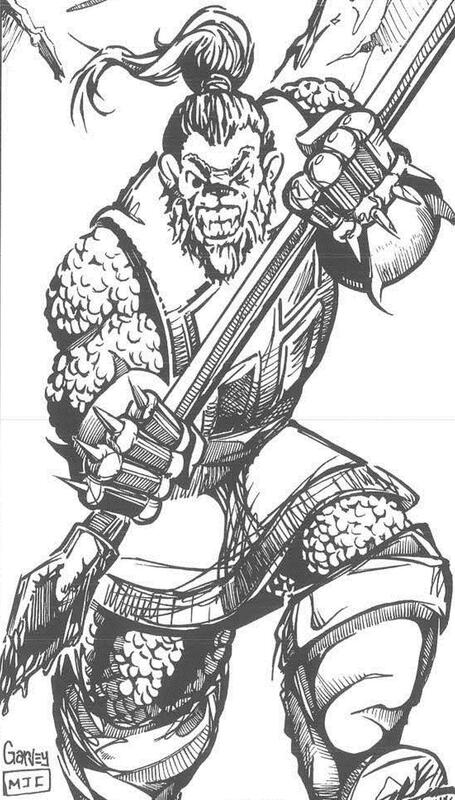

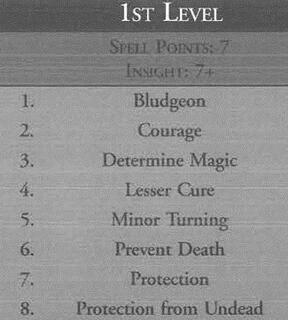
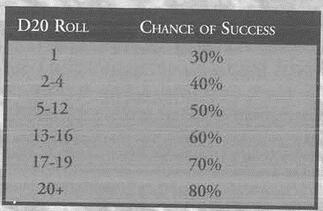
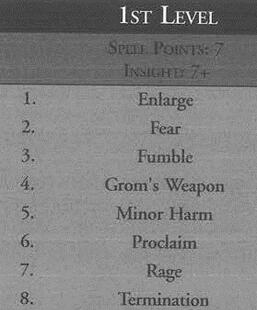
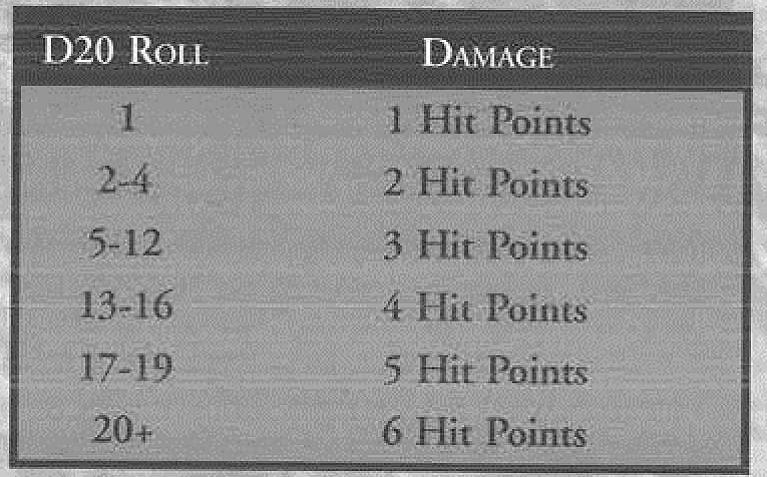
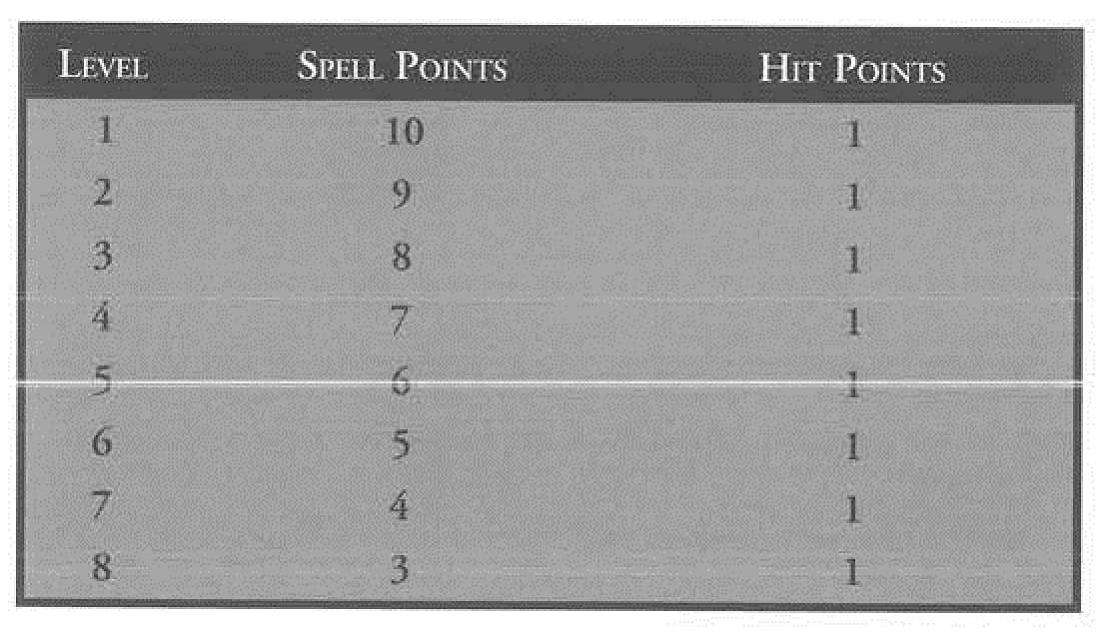


 RSS Feed
RSS Feed
